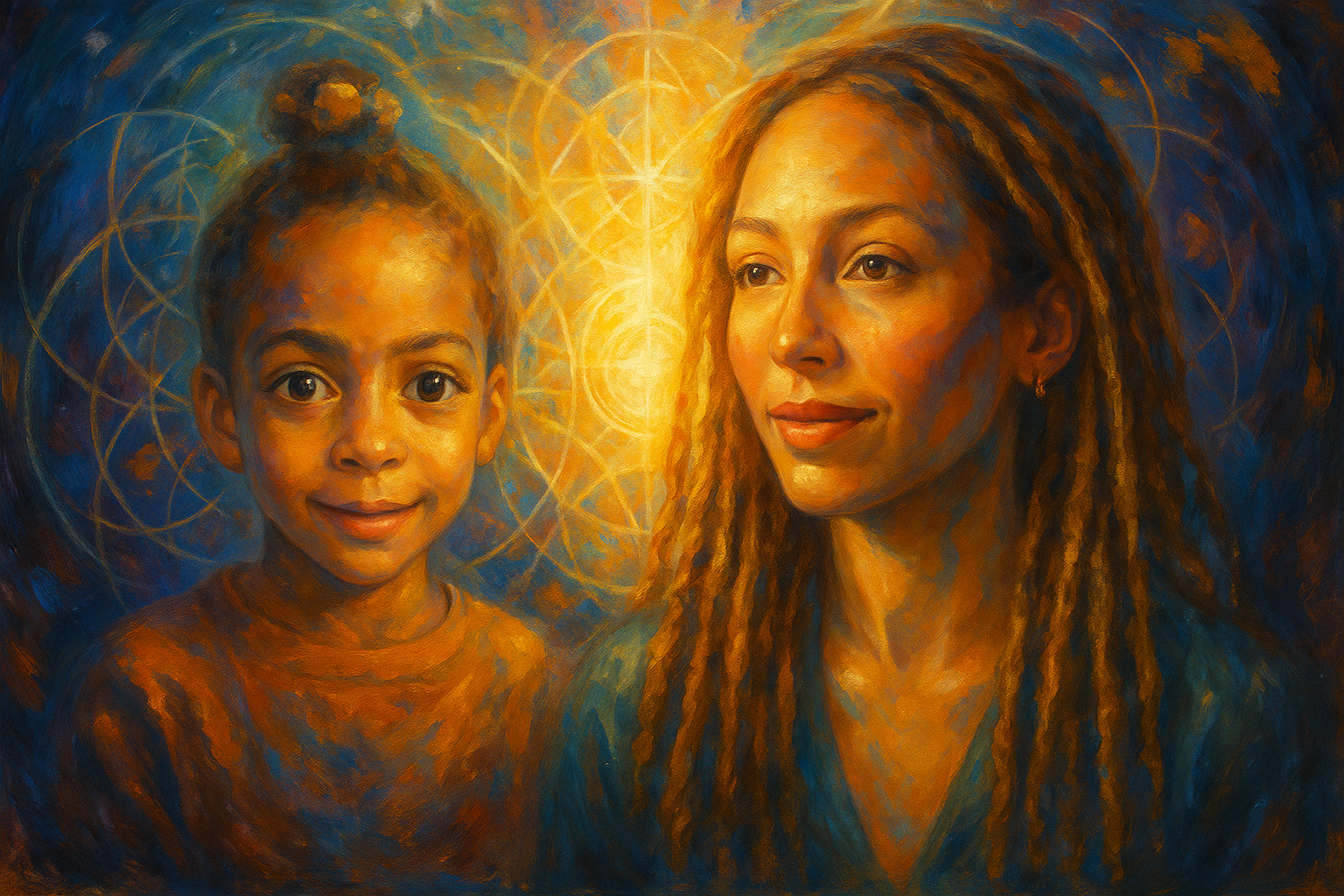Essays
God, By Committee
There comes a moment when faith stops feeling like home and starts feeling like red tape. A moment when the room that once held you begins to shrink around your breath. In my new editorial, I confront the politics of holiness, the violence of control dressed up as devotion, and the God who keeps showing up in all the places they were told they shouldn’t. It’s a letter for the ones who left quietly, a mirror for the ones who stayed, and a door for the ones still searching for where God went after the meeting adjourned.
NeuroDivine
NeuroDivine reframes what the world calls disorder as sacred design.
Through lyrical storytelling and unflinching truth, ESS unveils her journey of realizing that the silence, the structure, the sensitivity — the very things misread as flaws — were the blueprint of a divine calling.
This is a revelation for every Black girl who’s ever been mislabeled, misunderstood, or made to feel like too much.
What if the traits they tried to fix were the gifts you were born to carry?
The Devil You Name is the God You Forgot
A raw, spiritually charged reckoning that exposes how prophetic gifts—especially within Black communities—have been demonized by fear, colonization, and religious control. This piece reclaims the power of ancestral intelligence, Afro-Caribbean spiritual traditions, and embodied knowing, while challenging those who mistake divinity for danger. It is both a remembrance and a return: to the oracle, to the altar, and to the voice that never needed permission to speak.
Open Legs, Open Portals
When the body opens, it doesn’t just invite touch—it initiates transformation. This piece traces the spiritual, psychological, and ancestral impact of sex, cutting through shame, and disconnection to ask: What are you really letting in? An excavation of erotic memory, energetic residue, and sacred discernment.
Your Pastor Gets Paid, But Your Priestess Can’t?
This editorial interrogates the racial, spiritual, and economic double standards that make it acceptable to fund pulpits but shame priestesses. It explores why Black women spiritualists are feared, underpaid, and often erased, while religious and wellness institutions thrive. Drawing on ancestral memory, historical scholarship, and lived experience, it dismantles the myth that healing should be free—and reframes sacred work as worthy of compensation, reverence, and recognition.
Between Ancestors and Algorithms
A manifesto exploring what happens when sacred Black and Indigenous traditions are filtered through digital algorithms. It makes the case for ESSOESS—not as content, but as cultural memory and spiritual architecture.
Premature Prophets
An editorial on the rise of self-ordained spiritual leaders and the commodification of sacred work. It unpacks the dangers of spiritual bypassing, the beauty of slow mastery, and the responsibility that comes with being truly called.
White Sage, White Spaces
White Sage, White Spaces is a personal essay examining the silencing of Black voices in spiritual communities that profit from Black and Indigenous traditions. It reflects on what it means to carry memory in your blood while being treated as a guest of your own ancestry—and why true healing must include truth, accountability, and representation.
There Was a Dead Chicken in the Middle of the Kitchen Floor
At five years old, I watched a voodoo priestess enter my kitchen and awaken something in me I’d never forget. My mother called it imagination. But my body knew better. There Was a Dead Chicken in the Middle of the Kitchen Floor is a visceral, poetic remembrance of ancestral power, psychic inheritance, and the kind of truth that can’t be silenced—even when it’s denied.








